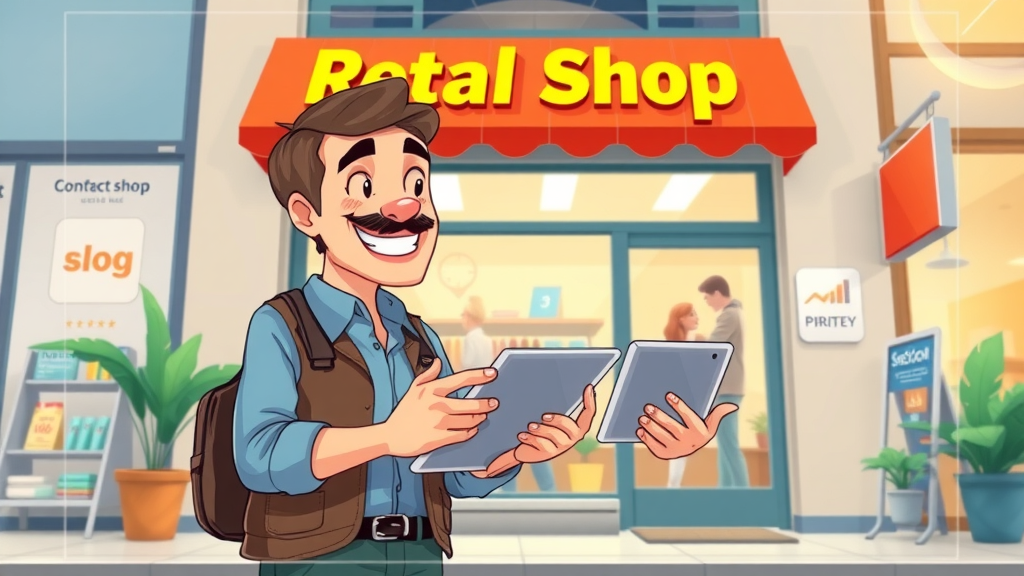Did you know that small businesses prioritizing content marketing experience conversion rates nearly 6x higher than those without a defined strategy? That's not just a number – it's the difference between steady growth and getting lost in the digital shuffle. In this guide, you'll discover the practical secrets behind deploying content marketing small business strategies proven to attract new customers, elevate your local authority, and keep your brand top-of-mind without a massive marketing budget. Ready to seize success? Let’s get started!

Why Content Marketing Small Business Strategies Work: The Power Behind the Numbers
Implementing a targeted content marketing small business strategy can feel daunting at first, but the payoff is undeniable. Recent studies consistently show businesses that invest in quality, relevant content see significant returns in lead generation, customer loyalty, and organic traffic. For small business owners with limited resources, content marketing offers a cost-effective solution to boost visibility and connect meaningfully with your target audience .
One of the key reasons these strategies succeed is their versatility. By creating content tailored to your audience's pain points and interests, you not only build trust but also drive ongoing engagement. Quality articles, how-to guides, blog posts, and even infographics act as silent salespeople, nurturing potential customers long after you hit publish. Whether your aim is traffic to your website, increased conversions, or establishing authority, content marketing empowers small businesses to punch above their weight class in any industry.
"Businesses that prioritize content marketing see conversion rates nearly 6x higher than those without a strategy." — Content Marketing Institute
What You Will Gain From This Guide on Content Marketing Small Business
- Understand how tailored content marketing accelerates small business growth
- Build a step-by-step content strategy
- Identify your target audience and ideal customer
- Master social media and email newsletter campaigns
- Access actionable content creation and content calendar templates
Defining Content Marketing Small Business Opportunities

Exploring Content Marketing for Small Businesses: Foundations and Impact
Content marketing for small businesses is all about creating and sharing valuable, relevant, and consistent content to attract and retain a clearly-defined target audience — and ultimately, to drive profitable customer action. Unlike large corporations with extensive budgets, small businesses rely on authenticity and agility to stand out. Effective content marketing elevates your brand, showcases your expertise, and enables you to directly address the pain points of your potential customers .
From publishing an insightful blog post to releasing an engaging video or comprehensive case studies , every piece of content you create should align with your brand values and objectives. The impact? Improved search engine rankings, greater authority in your niche, and consistent, organic traffic to your website. By embracing the right content creation habits, small business owners can transform their marketing efforts into sustainable growth engines fueling long-term success.
Why Content Strategy Is a Game Changer for Small Business Growth
A well-crafted content strategy sets the foundation for your small business's digital success. Without a cohesive plan, your content risks becoming scattered or irrelevant, failing to address your audience's needs or your business aims. By analyzing your ideal customer's journey and mapping content to each stage, you ensure every blog post, social media update, or newsletter moves prospects closer to conversion.
Strategically planned content amplifies your brand’s voice while optimizing your marketing ROI. Consistent publishing, informed by insights from analytics and direct customer feedback, distinguishes thriving small businesses from just “active” ones. The result is not just greater brand visibility, but measurable shifts in sales, loyalty, and reputation – the metrics that truly matter.
| Advantages of Content Marketing for Small Businesses | Case Study Comparisons: Traditional vs. Digital Marketing ROI |
|---|---|
| - Cost-effective & scalable - Builds authority & trust - Attracts targeted traffic - Enhances customer loyalty | Traditional: Local ads yielded 1.5% conversion & limited reach Digital Content Marketing: Consistent blog posts and videos increased conversions to 8%, doubled email subscribers, and cut acquisition costs by 40% within 6 months |
Content Strategy Essentials for Small Business Success

Developing a High-Impact Content Marketing Strategy
To create a winning content marketing strategy , begin by defining clear business goals and aligning your content efforts accordingly. Every piece of content —from blog posts to newsletters—should drive the business toward measurable objectives, such as increasing leads or boosting local reputation. Identify which channels matter most to your audience and focus your efforts there for maximum efficiency. Start by mapping out a content calendar to organize and schedule your releases, ensuring all marketing outputs serve a purpose and support overall growth.
The essence of high-impact strategy is prioritizing quality content over quantity. Rather than spreading yourself thin, focus on creating fewer but more relevant, targeted posts and campaigns that speak directly to the needs of your ideal customer. This approach brings together creativity and data-driven analysis, allowing rapid adjustments and improved engagement over time.
Crafting a Marketing Strategy to Reach Your Ideal Customer
Your ideal customer is central to every effective marketing strategy. Start by building detailed customer personas—fictional profiles based on real-world data about your market segment, pain points, and buying behavior. Analyze your best customers: What content do they consume? Which channels do they frequent? Tailor your messaging and content type to match their preferences, whether they're looking for how-to guides, product reviews, or social proof from case studies.
Engage in ongoing audience research to keep your personas current and reflective of shifting demands. Incorporate surveys, monitor your social media analytics, and leverage insights from previous successful content. The more specific and actionable your understanding of your target audience, the more precisely your marketing efforts will generate qualified leads and loyal customers.
Aligning Content Creation With Small Business Objectives
Every piece of content creation should actively support your company’s core mission and growth plans. Begin by listing your top business goals—such as increasing website traffic, boosting newsletter subscribers, or establishing local expert status. Map these objectives against your various content formats and determine which approaches best serve each goal. For example, a comprehensive white paper can build authority, while timely blog posts can drive search engine traffic and instant engagement.
Regularly revisit your goals and performance metrics to refine your content strategy . Pivot as needed based on what resonates most with your audience, and never stop innovating in your approach to keeping your small business relevant and top-of-mind within your community.
Identifying and Engaging Your Target Audience Through Content Marketing
"Knowing your audience is the cornerstone of any effective content marketing strategy—speak to their needs and you command their attention."
How to Define Your Ideal Customer as a Small Business
Defining your ideal customer goes beyond basic demographics. Start by identifying the specific challenges and desires driving your potential customer's purchasing decisions. Survey your current clients, study competitors' audiences, and utilize analytics to build a robust customer profile. This process helps ensure your content marketing small business efforts are directed at people most likely to value your offerings and engage long-term.
Consider the following when shaping your ideal customer persona: age range, buying motivations, common pain points , preferred content formats, and favorite social platforms. The resulting persona enables you to frame messaging that’s both highly relevant and persuasive, increasing the likelihood of conversions with every campaign.
Techniques to Segment and Engage Different Audience Types
Audience segmentation isn’t just for large enterprises—small businesses also benefit from dividing their target audience into distinct groups for more personalized outreach. Use purchase history, engagement patterns, and self-identified interests to segment your customer base. Once segmented, craft relevant content designed to address each group’s specific needs and interests, whether that’s through practical how-to videos, industry insights, or exclusive offers in your next email newsletter .
Consistently reviewing segment performance helps reveal which content types work best for various groups. Over time, this data-driven approach to engagement enables ongoing refinement, ensuring each marketing effort hits its mark with laser-like precision—and maximizes your return on investment.
Social Media Content Marketing for Small Business: Maximizing Outreach
Choosing the Best Social Media Platforms for Your Content Strategy
- Facebook for Local Reach: Ideal for businesses seeking to reach community members, promote events, and encourage reviews. Facebook’s targeting options make it a strong tool for building brand presence and fostering relationships with local audiences.
- Instagram for Branding: Perfect for visually driven brands and storytelling. Showcase products, behind-the-scenes action, or customer success stories to engage a younger, highly active demographic. Leverage trending visuals, Reels, and Stories for higher engagement.
- LinkedIn for B2B: For B2B small businesses or professionals, LinkedIn provides powerful opportunities for thought leadership and networking with other business owners. Publish white papers, industry insights, and company news to attract high-quality leads.
- Understanding Video Content Trends: Across every platform, video content reigns supreme for engagement and shareability. Even short, authentic clips can surpass the reach of static images or plain text posts.

Opportunities for Engaging Content Creation and Brand Storytelling
Social media isn’t just a broadcasting channel—it’s an opportunity to connect, humanize, and differentiate your small business through strategic content creation . Use these platforms to share your origin story, highlight your team, and spotlight satisfied customers through testimonials. Adding personal touches, behind-the-scenes looks, and even sharing your stumbles can endear your brand to your target audience and build trust over time.
Maximize your reach by tapping into platform-specific features (e.g., Instagram Reels, Facebook Live, or LinkedIn Polls), and understand which types of posts (such as customer Q&As, contests, or educational videos) resonate most with your community. Remember, consistent storytelling transforms customers from passive followers into brand advocates—your best marketers.
How to Create Content That Resonates With Your Small Business Audience
Effective Types of Content Marketing for Small Businesses
- Blog Posts: Boost SEO, answer customer pain points, and establish credibility with informative blog posts tailored to your niche.
- How-to Guides: Educate your target audience and solve problems, positioning your business as an expert solution-provider.
- Videos: Bring your brand to life with how-tos, testimonials, product walkthroughs, and behind-the-scenes snippets. Videos are shareable, engaging, and ideal for social media.
- Infographics: Present complex data, comparisons, or step-by-step processes in a visually appealing and easy-to-digest format.
- Case Studies: Show tangible results and build instant credibility. Real-world case studies help your audience visualize the value you provide.

Content Ideas Calendar: Staying Consistent With a Content Calendar
Consistency is the linchpin of every successful content marketing strategy. Developing a detailed content calendar helps you plan campaigns in advance, balance content types, and avoid common pitfalls like sporadic posting. A calendar not only structures your workflow but also makes it easier to capitalize on key industry events, holidays, and local happenings relevant to your audience.
Fill your content calendar with a mix of posts—educational articles, promotions, user-generated content, and seasonal themes. Schedule regular brainstorming sessions to keep ideas fresh and aligned with current marketing goals. Ultimately, a well-maintained calendar transforms content creation from a stressful afterthought into a streamlined, productive habit that steadily grows your business.
| Monthly Content Calendar Template For Small Businesses | Key Dates & Posting Schedule |
|---|---|
| Week 1: Publish a value-packed blog post Week 2: Share a customer case study on Facebook Week 3: Launch a video tutorial on Instagram Week 4: Send out an email newsletter and solicit feedback | Major holidays Industry events Monthly promotions Seasonal sales |

Building Relationships and Trust With Email Newsletter Content Marketing
Newsletter Content Strategy for Driving Engagement
A well-crafted email newsletter is a direct line to your most engaged audience members. The right strategy prioritizes relevancy and frequency, offering subscribers exclusive content, timely tips, and personalized recommendations. Segment your list to ensure each recipient receives content tailored to their interests, behaviors, and purchase history.
Use compelling subject lines to drive open rates, and deliver high-value, actionable content—such as how-to guides, product updates, and special offers—that keeps readers coming back. Over time, newsletters reinforce your brand’s credibility, nurture leads, and can even spark dialogue that yields fresh content creation ideas and testimonials for future campaigns.
Best Practices for Growing and Nurturing Your Email List
- Personalization tips: Greet subscribers by name and tailor recommendations based on past engagement.
- Subject line strategies: Test different headlines to see which generate the highest open and click-through rates. Use curiosity, urgency, or value-driven phrases to stand out in crowded inboxes.
- Segmentation examples: Divide your audience by purchase frequency, interests, or location to send more relevant, targeted content. Offer exclusive incentives (like coupons or early access to events) in exchange for sign-ups and referrals.
Tracking, Measuring, and Optimizing Small Business Content Marketing

Top Metrics to Track for Your Content Marketing Strategy
Knowing what to measure is critical for refining your content marketing strategy . Start by monitoring metrics like website traffic, bounce rate, page views per session, and conversion rate to gauge how your content creation efforts translate into tangible results. Track social media engagement (shares, likes, comments), email open/click rates, and keyword rankings to evaluate the reach and impact of each marketing channel.
For deeper insights, assess how individual pieces of content perform against your goals. Are certain blogs driving more inbound leads or newsletter sign-ups? Do videos or how-to guides spur more social shares? Use this data to double down on what works—and ditch what doesn’t—for ongoing improvement and higher ROI.
Free and Paid Tools for Analyzing Your Marketing Results
Small businesses can leverage a mix of free and premium tools to monitor marketing effectiveness. Google Analytics remains the gold standard for tracking website behavior and conversions, while social platforms like Facebook and Instagram provide their own analytics dashboards as well. Consider content calendar tools such as Trello or Asana and scheduling platforms like Buffer or Hootsuite for streamlined execution and centralized reporting.
For more robust tracking, explore paid tools such as SEMrush for SEO and keyword analysis, or HubSpot for integrated CRM and campaign monitoring. Combine multiple tools for comprehensive insights and a dynamic, blameless feedback loop to continually evolve your strategy.
Adjusting Your Content Marketing Based on Performance Data
Evaluating analytics shouldn’t be a “set it and forget it” exercise. Regularly schedule time to review performance metrics across every content channel, illuminating trends in engagement, conversions, and traffic patterns. A/B test subject lines, blog templates, and calls-to-action to find out what resonates most with your target audience and potential customers .
Apply lessons from your top-performing content to future campaigns, reallocating resources from underperforming channels. Empower your team to brainstorm new ideas drawn from audience feedback and real-world behavior—your content marketing approach will always improve when grounded in actionable data.
Tools and Resources Every Small Business Needs for Winning Content Marketing
- Top content management systems: WordPress, Wix, or Squarespace make launching and maintaining a small business website easy, with built-in SEO features and content scheduling tools.
- Social media scheduling platforms: Tools like Buffer, Hootsuite, or Later allow you to pre-schedule posts, monitor engagement, and maintain a consistent cadence with minimal effort.
- Visual content creation tools: Canva, Adobe Spark, and Piktochart enable even non-designers to turn ideas into eye-catching graphics, infographics, and branded templates for every channel.
Overcoming Common Small Business Content Marketing Challenges
How to Tackle Time, Budget, and Inspiration Roadblocks
Every small business owner faces moments when time, money, or fresh ideas are in short supply. Streamline your marketing workflow by batching tasks—such as writing multiple blog posts or scheduling all social media updates for the week—during one productive session. Lean into user-generated content and encourage customers to share their own experiences, which not only diversifies your content but also builds community and trust.
When budget is tight, pivot toward owned channels (like your website and email list) and free tools for scheduling or analytics. Collaborate with local influencers, or partner on co-branded campaigns, to extend your reach at minimal cost. Most importantly, invest time in tracking what content sparks the most positive results—so you can focus your efforts on what matters most.
"Content is king, but consistency and relevancy make it reign in small business marketing."
Expert Insights: Case Studies of Content Marketing Small Business Success
- Case Study 1: Boutique Shop Doubles Leads in 120 Days A local boutique used a targeted blog and email newsletter strategy to answer customer pain points and showcase new products. Through regular posting and exclusive email offers, lead capture forms were completed at double the rate in just four months.
- Case Study 2: Local Cafe Boosts Loyalty Through Social Media Campaign Leveraging user-generated content, a neighborhood café ran a #MyCafeMorning Instagram contest. The campaign resulted in a 30% increase in repeat visits, 500% more social shares, and dozens of glowing new reviews.
- Case Study 3: Service-Based Startup Generates Reviews With Educational Content A home services startup launched a series of DIY video tutorials and blog posts tackling common customer repair questions. As website traffic surged, customers began leaving authentic testimonials and referrals, fueling exponential local growth.
People Also Ask: In-Depth Answers for Content Marketing Small Business
What are the 5 C's of content marketing?
- Content: Well-produced material that provides real value
- Context: Relevance of the message to the audience’s needs
- Consistency: Regularly scheduled publishing for ongoing engagement
- Community: Fostering engagement and participation
- Conversion: Driving measurable business results, such as leads or sales
What are the 3 C's of content marketing?
- Content: Creation of value-driven resources
- Channel: Distribution methods and platforms used
- Customer: Focusing on the audience’s unique needs and behaviors
What type of marketing is best for small business?
- Content marketing dominates due to cost-effectiveness, reach, and relationship-building
- Social media and email marketing reinforce brand presence and nurture leads
How to start a content marketing business?
- Acquire content strategy and writing skills
- Build a portfolio with sample projects
- Network with local business owners to gain referrals
- Create a website to showcase expertise and results
- Offer integrated content and social media marketing packages tailored to client needs
Frequently Asked Questions About Content Marketing Small Business
- How much should small businesses spend on content marketing? As a rule of thumb, small businesses often dedicate 10–20% of their marketing budget to content marketing. Start small and scale as results become measurable, prioritizing efforts that drive the highest return on investment.
- How often should a small business publish new content? Achieve consistency by posting at least one new blog or social media update per week, gradually increasing frequency as you develop reliable processes and see audience engagement grow.
- Is a blog necessary for every small business? While not essential, maintaining a blog greatly enhances SEO, builds trust, and supports ongoing engagement. Even occasional, high-quality posts outperform a stale, seldom-updated blog.
- How does content marketing help SEO for small businesses? Consistent content improves search engine rankings by targeting relevant keywords, earning backlinks, and keeping your website continually fresh and authoritative within your niche.
Summary: Key Takeaways for Content Marketing Small Business Mastery
- A clear content strategy accelerates small business growth
- Know your target audience and create tailored, relevant content
- Leverage social media and newsletters for ongoing engagement
- Consistently track and optimize your content marketing efforts
Realize the potential of content marketing small business strategies and become the local go‑to expert—learn about our authority building system at LocalMarketingResource.com or call/text 352 266 0499 and start attracting real leads today!
Watch: Content Marketing for Small Businesses — Real-Life Strategies (Video)
Instructional video featuring interviews, behind-the-scenes planning, and graphics illustrating success metrics for content marketing small business campaigns.
 Add Row
Add Row  Add
Add 




Write A Comment